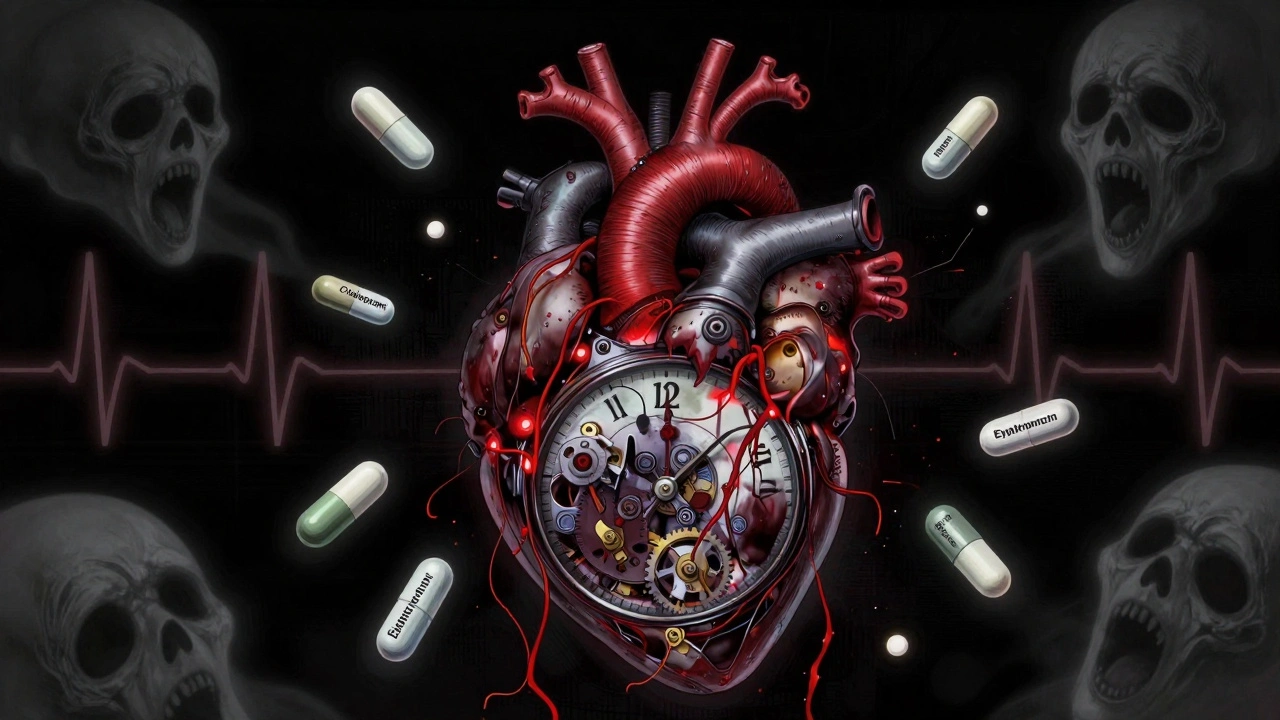Heart Health: Practical Tips for Everyday Life
Shortness of breath and tiredness can turn small tasks into big ones. If your heart feels different or your energy drops, you want clear steps — not confusion. On this page you'll find real patient stories about switching beta-blockers and plain advice for living with left ventricular dysfunction. Use these tips to talk to your doctor and make day-to-day life easier.
Switching Beta-Blockers: What to Expect
People switch from metoprolol for many reasons: side effects like dizziness or low energy, breathing issues if you have asthma, or doctor wanting a different effect on blood pressure or heart rhythm. Don’t stop a beta-blocker suddenly. Your dose usually needs to come down slowly over days or weeks to avoid rebound high blood pressure or fast heart rate. Common changes when switching include slight extra tiredness for a week or two, or temporary changes in sleep and exercise tolerance. Less common reactions are lightheadedness when standing or changes in glucose control if you have diabetes. Ask your doctor: why this new drug, how long until I notice changes, what signs mean I should call, and how we will taper. Keep a simple log for two weeks — record symptoms, pulse, blood pressure, sleep quality, and any side effects. This makes follow-up visits more useful. Typical alternatives to metoprolol include atenolol, bisoprolol, carvedilol, and nebivolol. Each works a bit differently, so tradeoffs matter: carvedilol can help when heart function is weak, while nebivolol may cause less tiredness for some people.
Living with Left Ventricular Dysfunction
Left ventricular dysfunction reduces how well your heart pumps. That often shows as fatigue, shortness of breath with activity, waking breathless at night, or swelling in the ankles and belly. Small changes help a lot. Follow prescribed meds exactly; many people feel better once medicines are adjusted. Check your weight — a gain of two to three pounds in a day or five pounds a week can mean fluid build-up and should prompt a call. Cut added salt to under 2,000 mg a day if your doctor suggests it, and watch fluids if advised. Break tasks into chunks: sit while folding laundry, rest between flights of stairs, use a cart or friend to carry heavy bags. Gentle, regular activity helps most people — try short walks and build up slowly, or join cardiac rehab if available. Stop and call your doctor for chest pain, fainting, sudden severe breathlessness, or swelling that worsens quickly. Get seasonal vaccines like flu and pneumonia shots; avoiding infections keeps the heart from working harder. Sleep matters too — talk to your doctor if you snore loudly or wake gasping, since sleep apnea can worsen heart function.
Use support: ask a pharmacist for a drug review, bring a printed symptom log to visits, and lean on family for heavy chores. Read the patient stories here to hear real experiences with medication changes and daily life. Bring clear questions to your appointments; practical talks lead to better care.

- Dec 10, 2025
- SkyCaddie Fixer
- 10 Comments
QT Prolongation and Sudden Cardiac Death from Medications: Key Risk Factors You Need to Know
QT prolongation from medications can lead to sudden cardiac death. Learn the top risk factors, dangerous drug combinations, and how to protect yourself with simple, actionable steps.

- Sep 25, 2025
- SkyCaddie Fixer
- 20 Comments
Supraventricular Tachycardia: Key Risk Factors & Proven Prevention Strategies
Discover what triggers supraventricular tachycardia, how to lower your risk, and practical steps to keep your heart rhythm steady.

- Sep 24, 2025
- SkyCaddie Fixer
- 11 Comments
Supraventricular Tachycardia: Key Risk Factors & Prevention Strategies
Explore the main risk factors behind supraventricular tachycardia and practical prevention steps, from lifestyle tweaks to medication choices.

- Apr 27, 2025
- SkyCaddie Fixer
- 8 Comments
Patient Stories: Real Experiences Switching from Metoprolol to Other Beta-Blockers
This article digs into first-person stories of people who switched from metoprolol to other beta-blockers, sharing honest details about their symptoms, how their bodies reacted, and what their doctors had to say. Get up-to-date facts and practical tips about what people actually go through when making the change. If you’re wondering how it feels to switch, what new meds are out there, or how to talk to your doctor about it, this guide covers all the angles. Real patients explain what went right, what felt off, and how their daily lives shifted. You’ll also find expert-backed tips and a direct resource comparing alternative options.

- May 11, 2023
- SkyCaddie Fixer
- 14 Comments
The Impact of Left Ventricular Dysfunction on Activities of Daily Living
In my latest blog post, I discussed the impact of left ventricular dysfunction on our daily lives. This condition affects the heart's ability to pump blood efficiently, leading to fatigue and shortness of breath. As a result, simple tasks like walking, climbing stairs or even carrying groceries can become increasingly difficult. I also explored the importance of managing this condition through medication, exercise, and diet to improve overall quality of life. It's essential to raise awareness about left ventricular dysfunction and its effects on daily activities to help those affected lead healthier, more fulfilling lives.
